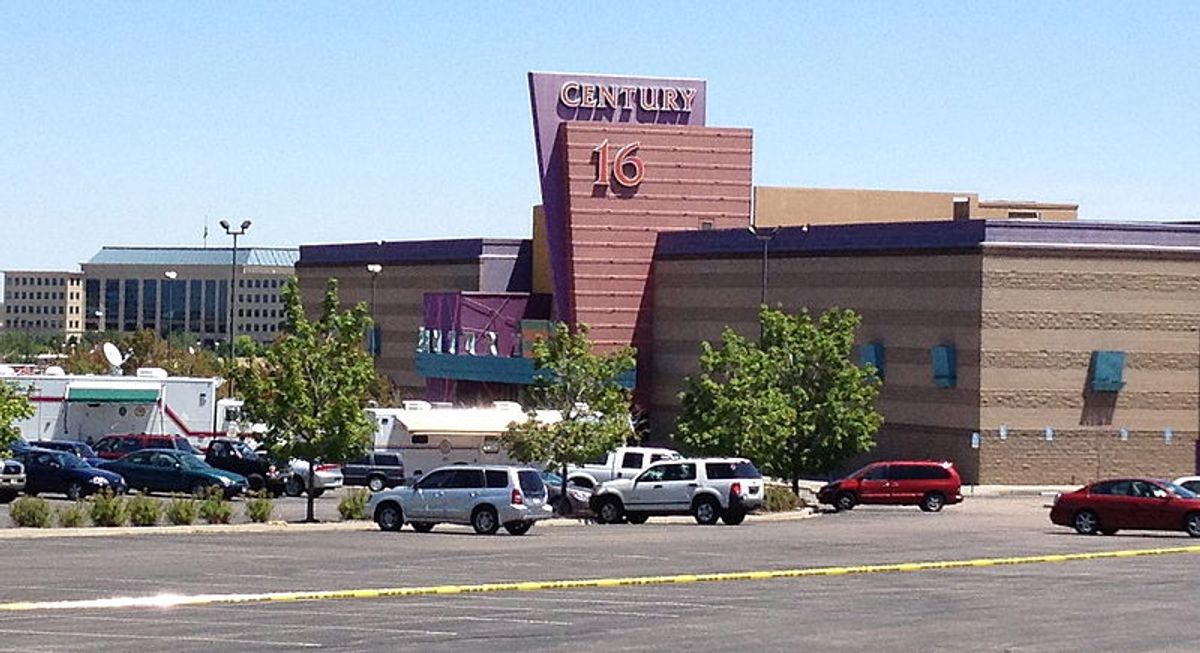Four survivors of the shooting massacre in Aurora, Colorado, now owe the third-largest movie theater company in the country $700,000.
In 2012, 12 people were killed and at least 70 others were wounded when James Holmes walked into the Cinemark's Aurora Century 16 theater and opened fire.
While Holmes was found guilty in 2015, a group of survivors filed a state lawsuit against Cinemark in 2012, claiming lax security allowed the heavily-armed Holmes to enter the theater and carry out the shooting. Ultimately, a jury of six sided with Cinemark in the civil case in state court, finding that there was no way they could have foreseen the attack and that additional security would have done little to stop Holmes, who was wearing body armor and was armed with gas canisters and multiple firearms.”
A judge at the same time also dismissed a similar lawsuit in federal court, saying Cinemark's lack of security was not a substantial factor in the deaths.
Colorado law allows the winning side of civil cases to seek costs. According to the Los Angeles Times, Cinemark's lawyers at the time told a judge the money was needed to cover the costs of preserving evidence, retrieving and copying records, travel and other expenses - including $500,000 for expert testimony.
The judge in the case, District Judge R. Brooke Jackson, gave both sides 24 hours to come to a settlement agreement, urging the survivors to take a settlement from Cinemark. The company offered $150,000 split among 41 plaintiffs. The Times spoke to four people privy to the confidential negotiations:
They decided on a split of $30,000 each to the three most critically injured survivors. The remaining 38 plaintiffs would equally share the remaining $60,000.
Attorneys with Cinemark drafted a news release to distribute the next day.
Then one plaintiff rejected the deal. Her suffering had been profound: Her child was killed in the shooting, she was left paralyzed and the baby she was carrying had been lost.
As plaintiff Marcus Weaver told the Times, “[The settlement] was a slap in the face."
"But I said, ‘Let’s go for it because it’s better than nothing,’” Weaver recalled to the Times.
"Either seek justice and go into debt, or take that pitiful offering of money and the improved public safety.”
But after the one plaintiff rejected the settlement offer, the remaining plaintiffs were left with no acknowledgment of liability from Cinemark, no guarantees of improved theater safety, and responsible for Cinemark's court fees.
Weaver, who was shot in the shoulder during the attack and watched his friend Rebecca Wingo die beside him, said he had no choice but then withdraw as a plantiff in the case, leaving only four remaining survivors to foot Cinemark's legal bill:
Weaver’s vision briefly blurred. The eight hours they had spent negotiating the deal, the weeks of the failed state court trial, the four years of anger at the theater since the shooting — all of it was for nothing.
“It was done then,” Weaver said.
He removed himself as a plaintiff immediately. So did 36 other people. Four plaintiffs remained on the case the next day, June 24, when Jackson handed down the order that Cinemark was not liable for the damages.
"Theaters aren't any safer," Weaver told the Times. "It's almost like everything was for naught."



Shares